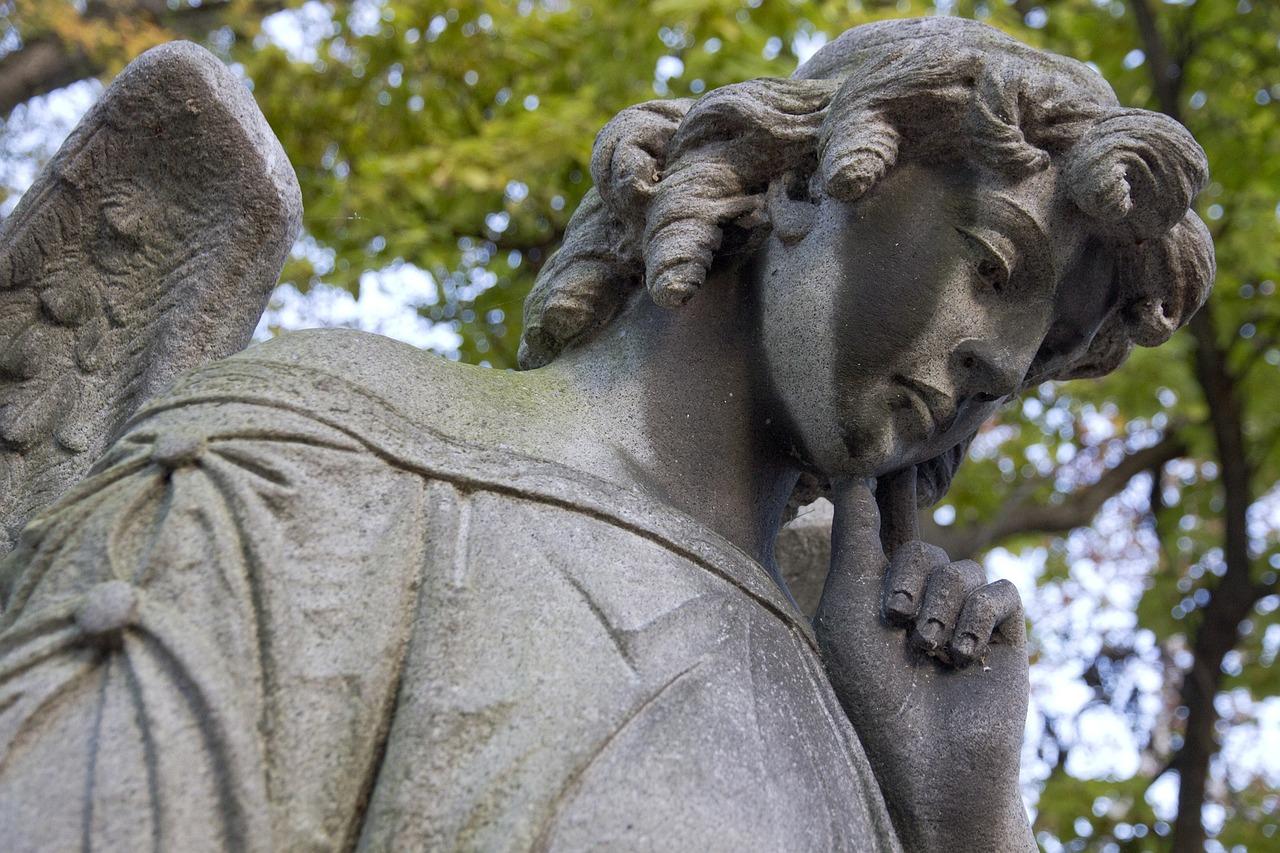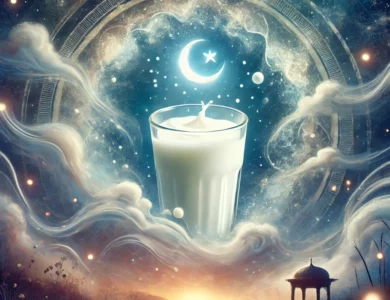
Exploring the mysterious realm of afterlife dreams opens a window into the depths of our subconscious and cultural beliefs. These dreams, where the veil between life and the afterlife seems to thin, are both intriguing and profound. They carry a spectrum of meanings, influenced by psychological, cultural, and spiritual perspectives. From comforting reunions with lost loved ones to symbolic journeys into unknown realms, afterlife dreams serve as a mirror reflecting our deepest fears, hopes, and questions about life, death, and beyond. This guide delves into the myriad interpretations and common themes of these enigmatic dreams.
Afterlife Dream Meaning and Interpretations
Understanding the Afterlife Dream Meaning involves delving into a multifaceted world of interpretations, varying across psychological, cultural, and spiritual dimensions. These dreams can be deeply personal and often carry significant insights into our subconscious minds.
- Psychological Perspectives:
- Reflection of inner fears: Dreams about the afterlife may symbolize our anxieties or fears about death and the unknown.
- Processing grief and loss: Encountering deceased loved ones in dreams can be a part of the grieving process, helping us to find closure or comfort.
- Manifestation of unresolved emotions: These dreams might also represent unresolved feelings or guilt towards people who have passed away.
- Exploration of existential questions: Often, such dreams lead to self-reflection about the meaning of life and our existence.
- Cultural Interpretations:
- Varying cultural beliefs: Different cultures have unique interpretations of afterlife dreams, shaped by their traditions and beliefs about death.
- Ancestral communication: In some cultures, dreaming of the afterlife is seen as a means of communicating with ancestors or receiving their guidance.
- Omens or premonitions: Certain societies might interpret these dreams as omens, either positive or negative, about future events.
- Spiritual and Symbolic Meanings:
- Connection with the spiritual realm: These dreams might be perceived as a bridge between the physical world and the spiritual realm.
- Symbolism of life cycles: Dreams about the afterlife can symbolize the cycle of life, death, and rebirth, reflecting on the perpetual nature of existence.
- Insights into personal spirituality: Encountering spiritual entities or scenarios in dreams can lead to deeper personal spiritual understanding and enlightenment.
- Exploration of moral and ethical beliefs: Such dreams might also challenge or reaffirm one’s moral and ethical beliefs, reflecting the inner moral compass.
Each interpretation of an afterlife dream adds a layer of complexity to our understanding of these profound experiences. They are not just mere figments of imagination but windows into our deepest fears, beliefs, and spiritual inclinations. By exploring these dreams, we can gain insights into our psyche and the universal human experience with death and what might lie beyond.
What are Common Afterlife Dreams?
The realm of afterlife dreams is vast and varied, encompassing a range of common themes and scenarios. These dreams can be reflective, comforting, or sometimes unsettling, each carrying its unique symbolism and significance.
- Meeting Deceased Loved Ones:
- Reunions: Dreams where one reunites with a loved one, often filled with emotions of joy, longing, or closure.
- Messages: Dreams in which the deceased communicate messages, which could be interpreted as guidance, warnings, or reassurances.
- Unfinished Business: Encounters that might indicate unresolved issues or the need for closure with the deceased.
- Experiencing Different Realms:
- Heavenly or Peaceful Scenarios: Dreams depicting serene landscapes or heavenly realms, often associated with feelings of peace and tranquility.
- Unknown or Mysterious Settings: Dreams set in unfamiliar or ambiguous locations, potentially reflecting uncertainty about the afterlife.
- Dark or Frightening Visions: Unsettling dreams that might represent fears about death or the unknown aspects of the afterlife.
- Encounters with Spiritual Entities:
- Angels or Benevolent Beings: Dreams of meeting spiritual guides or protectors, often interpreted as signs of comfort or spiritual support.
- Ethereal Creatures: Encounters with beings that are neither human nor recognizable, symbolizing the mysteries of the afterlife.
- Judgment or Evaluation Scenarios: Dreams where one’s life is assessed or judged, reflecting inner moral or ethical dilemmas.
- Symbolic Representations:
- Crossing Over: Dreams involving crossing a bridge or boundary, symbolizing the transition from life to afterlife.
- Journeys: Dreams of traveling, which may represent the soul’s journey after death or a personal journey of spiritual growth.
- Light and Darkness: Motifs of light, such as a bright tunnel, or darkness, representing hope, guidance, or fear of the unknown.
These common afterlife dreams offer a window into our deepest thoughts and beliefs about life, death, and what may lie beyond. They are not only reflections of our subconscious but also serve as a medium for coping with loss, understanding our mortality, and exploring the spiritual aspects of our existence.
Biblical Meaning of Afterlife in Dreams
The dreams of the afterlife in a biblical context are layered with symbolism and meaning, often interpreted as divine messages or reflections of spiritual beliefs. These dreams can be viewed through various lenses, each providing a unique perspective on the biblical understanding of life after death.
- Visions of Heaven and Hell:
- Heavenly Encounters: Dreams that include visions of paradise or heavenly realms, often interpreted as reassurances of salvation and eternal peace.
- Hellish Visions: Dreams featuring hell or purgatorial scenes, which might be viewed as warnings or reflections of inner guilt or sin.
- Biblical Figures and Events:
- Meeting Biblical Characters: Dreams in which one encounters figures from the Bible, possibly representing guidance, wisdom, or moral lessons.
- Re-enactments of Biblical Stories: Dreams that parallel stories from the Bible, which may offer insights into one’s life or spiritual journey.
- Prophetic and Revelatory Dreams:
- Prophetic Visions: Dreams that are perceived as prophetic, often containing symbolic imagery or scenarios that are interpreted as divine revelations.
- Dreams of Revelation: Dreams that align with themes from the Book of Revelation, often filled with apocalyptic or transformative symbolism.
- Symbolic Interpretations:
- Gardens, Rivers, and Trees: Dreams featuring these elements, often symbolizing life, renewal, and spiritual nourishment, drawing parallels with the Garden of Eden.
- Light Versus Darkness: Motifs of light and darkness, representing good and evil, salvation and sin, or divine presence and absence.
- Moral and Ethical Reflections:
- Judgment or Trial: Dreams where one experiences a form of judgment, reflecting the biblical theme of divine judgment and personal accountability.
- Moral Dilemmas: Dreams that present ethical or moral choices, resonating with biblical teachings on righteousness and moral conduct.
The biblical interpretation of afterlife dreams provides a rich tapestry of spiritual insights. These dreams are often seen as more than mere nighttime visions; they are regarded as potential channels for divine communication, offering guidance, warning, comfort, or reflection on one’s spiritual path.
Conclusion
In conclusion, the journey through the meanings and interpretations of afterlife dreams reveals a rich and multifaceted tapestry of human experience. These dreams, blending reality with the metaphysical, offer insights into our deepest emotions and beliefs about the afterlife. Whether viewed through psychological, cultural, or spiritual lenses, they reflect our innermost thoughts about existence and beyond. Understanding these dreams can provide comfort, clarity, and a deeper connection to our spiritual selves. As we navigate these nocturnal visions, we gain a greater appreciation of the complex relationship between life, death, and the mysterious realms that may lie beyond our waking understanding.



